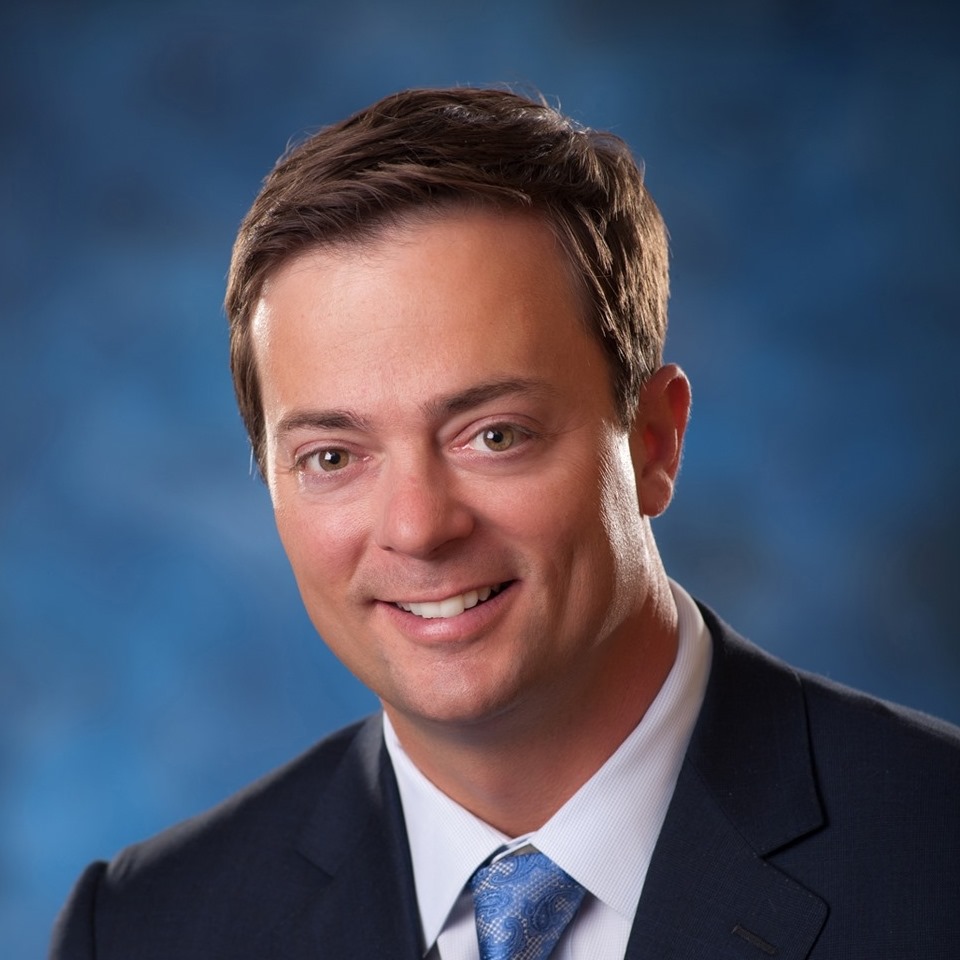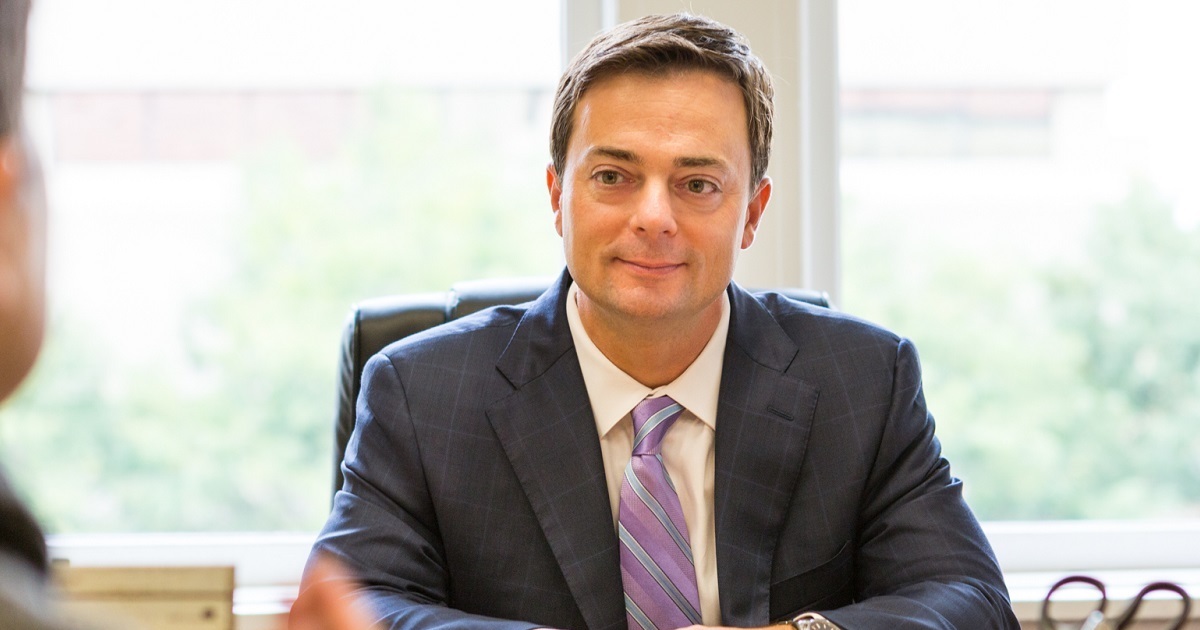Key actions and positions posted on the intersection of disability and education, jobs, immigration, climate crisis, criminal justice and more

Charlestown, WV Sept. 11 – Democratic Governor candidate and current Kanawha County commissioner Ben Salango has responded to a detailed candidate questionnaire on disability issues. The questionnaire is from RespectAbility, a nonpartisan nonprofit disability organization that does not endorse candidates. The questionnaire is purely for educational purposes. RespectAbility has reached out to key Senate and gubernatorial campaigns on both sides of the aisle and will be posting all responses on The RespectAbility Report. The full text of RespectAbility’s questions and Salango’s responses follows:
1. Learning during the COVID-19 pandemic has led to more issues and concerns for all students and their families, but this is especially true for students with disabilities. Additionally, the gap in graduation and drop-out rates between students with and without disabilities continues to undermine their futures. For example, in the class of 2018, only 66 percent of Black students with disabilities, 71 percent of Hispanic students with disabilities, 77 percent of white students with disabilities, and 79 percent of Asian-American students with disabilities completed high school. Furthermore, just seven percent of students born with a disability graduate from college. What is your plan for ensuring that all students with disabilities receive a quality and appropriate education to acquire the critical and marketable skills necessary to compete in a job-driven economy?
As Governor, I would spend every penny of the $1.25 billion in federal relief West Virginia received. There is a whole pot of money sitting there unused that could be directed to preparing our schools for virtual learning by ensuring access to the internet and safer in-person learning by stockpiling PPE and sanitation. We need to make sure our next generation of students is prepared for the workforce, regardless of their abilities or risk of COVID-19 complications.
Unlike the current Governor, I would develop a plan with legislators, county commissioners, mayors, educators, and parents to use relief funds wisely and keep the promise of a quality education for all.
2. In the economic expansion prior to the COVID-19 pandemic, the national employment rate for working-age people with disabilities in America was 37.6 percent compared to 77.8 percent of people without disabilities. Further, there continues to be significant disparities in employment outcomes within the disability community, which varies from state to state. There are significant racial disparities in disability employment outcomes. 38.9 percent of working-age white people with disabilities have jobs compared to only 29.7 percent of working-age Black people with disabilities had jobs, 39.4 percent of working-age Hispanics with disabilities and 43.2 percent of working-age Asian-Americans with disabilities. The pandemic has ravaged the disability community and more than 1 million workers with disabilities have lost their jobs. If elected, what will you do to ensure that the government is removing barriers and promoting high quality, inclusive services built on evidence-based policies, practices and procedures leading to competitive, meaningful careers, which includes promoting entrepreneurial opportunities?
As governor, I will establish a business start-up assistance program for injured veterans who want to start their own businesses — similar to the UKAN program I spearheaded as Kanawha County commissioner.
As governor, Ben will expand broadband access across West Virginia. Your personal mobility or where you live should not affect your ability to work or run a business, and a Salango administration will fight to make sure everyone can access broadband.
3. The disability community fundamentally believes in the need to ensure “Nothing about us, without us” – real inclusion and places at decision making tables – because we know solutions that work and want to be a part of making our communities stronger. What specific measures have you taken to make your campaign accessible for, and inclusive of, people with disabilities, as every issue impacts our lives?
We’ve had many Zoom events and Facebook live events that make it easier for all West Virginians to learn about me and my campaign from the comfort of their home. My campaign HQ has a ramp that is wheelchair accessible. All of my TV ads are shipped to the stations with closed captioning.
4. RespectAbility published Disability in Philanthropy & Nonprofits, based on our study on the levels of disability inclusion in the social sector across the country. This largescale study found significant data showing that nationwide, organizations overall want to be inclusive, but are unintentionally excluding the one-in-five people with disabilities. What will you do to promote policies and practices designed to support full community engagement, access and inclusion of people with disabilities?
I will make health care affordable and accessible and will protect the 800,000 West Virginians with pre-existing conditions. Ben will fight for a cap on monthly insulin co-pays and make prescription drugs affordable.
I fully supported the effort to eliminate the Intellectual/ Developmental Disabilities (IDD) waiver waitlist using surplus Medicaid funds. It’s too bad Jim Justice had to be dragged, kicking and screaming to do it.
I will utilize tele-health technology to give rural communities or those with disabilities better access to health care.I will strengthen healthcare protections to help consumers who are wrongly denied health insurance coverage to make sure that insurance companies aren’t taking advantage of Mountain State families.
I will strengthen healthcare protections to help consumers who are wrongly denied health insurance coverage to make sure that insurance companies aren’t taking advantage of Mountain State families.
5. Elected officials have multiple opportunities to demonstrate a strong commitment to diversity and inclusion, full community participation and celebrating the contributions and accomplishments of people with disabilities through press releases, speeches, celebratory events including National Disability Employment Awareness Month. There are significant stigmas that create attitudinal barriers that limit options and perpetuates low expectations for people with disabilities. What measures will you take to combat these stigmas and promote opportunities for people with disabilities?
As a lawyer for over twenty years, I have fought for justice and held the powerful accountable. I’ve fought and won discrimination cases on behalf of West Virginians.
As governor, I will make equality a priority and will:
- Make West Virginia a state welcoming to all people.
- Work with community and minority leaders to root out discrimination in state government.
- Increase accountability and transparency.
- Protect West Virginians from all forms of discrimination.
- Increase education and public awareness to prevent discrimination and hate.
6. In our nation’s public schools, there are 6.3 million students with disabilities. The changing demographics of America are reflected in these students, with 11.4 percent of students with disabilities nationwide, almost 720,000, also identified as English-language learners. Their accommodation needs are compounded by the fact that many come from households that do not speak English at home, adding an extra challenge for parental interaction. It can also be harder to diagnose disabilities in children when they are English language learners. Additionally, immigration issues and fears over the public charge rule impact students with disabilities, their families and the wider workforce. What policies would you advance to enable students and their families who are English language learners with disabilities to succeed in school and employment?
I believe technical and vocational training are critical. All West Virginians should have access to them near their community. I will expand broadband access so that more students can learn from home.
7. Housing, criminal justice, climate issues, transportation and every other area have significant impacts on people with disabilities. What additional policies and priorities, other than those already discussed above, do you plan to focus on to improve the lives of people with disabilities?
As governor, I will expand substance abuse and mental health counseling for West Virginians, and particularly our veterans and first responders injured in the line of duty. To address the growing Black Lung problem among our state’s coal miners disabled on the job, I will:
- Provide funding for early medical treatment to slow down the progression of Black Lung.
- Require insurance providers to award 20 weeks of benefits to all miners who have early-stage black lung. This will help them to seek treatment and to prevent the disease from progressing to more complicated forms.
- Require insurance providers to award 25% partial disability to any miner who has progressed to having complicated black lung.
- Make it easier for miners to file a state workers’ compensation case. Currently, if a miner files a claim more than three years after their last coal mine employment, the workers’ compensation insurance company does not have to pay for a black lung exam, unless the miner has already developed your own proof of breathing complications.
- Establish a state Black Lung Pension Fund, similar to SB 144 (2019). It would provide a monthly benefit for pain and suffering to all miners who were exposed to the hazard of coal mine dust inhalation for 10 years.
In my personal life, I have sponsored sensitive Santa programs for children with Autism for over a decade. I also built Challenger Field in Nitro. I will continue to make sure everyone has equal opportunities when governor.
Commissioner Salango is facing off against incumbent Republican Gov. Jim Justice in this year’s gubernatorial election in West Virginia. RespectAbility has contacted the Justice campaign about completing our nonpartisan questionnaire multiple times via email and we currently are waiting to receive their response.
RespectAbility is a nonprofit, nonpartisan organization that fights stigmas and advances opportunities so people with disabilities can fully participate in all aspects of their communities. RespectAbility does not rate or endorse candidates. View more coverage of 2020 candidates.

[…] Read Response in Full […]